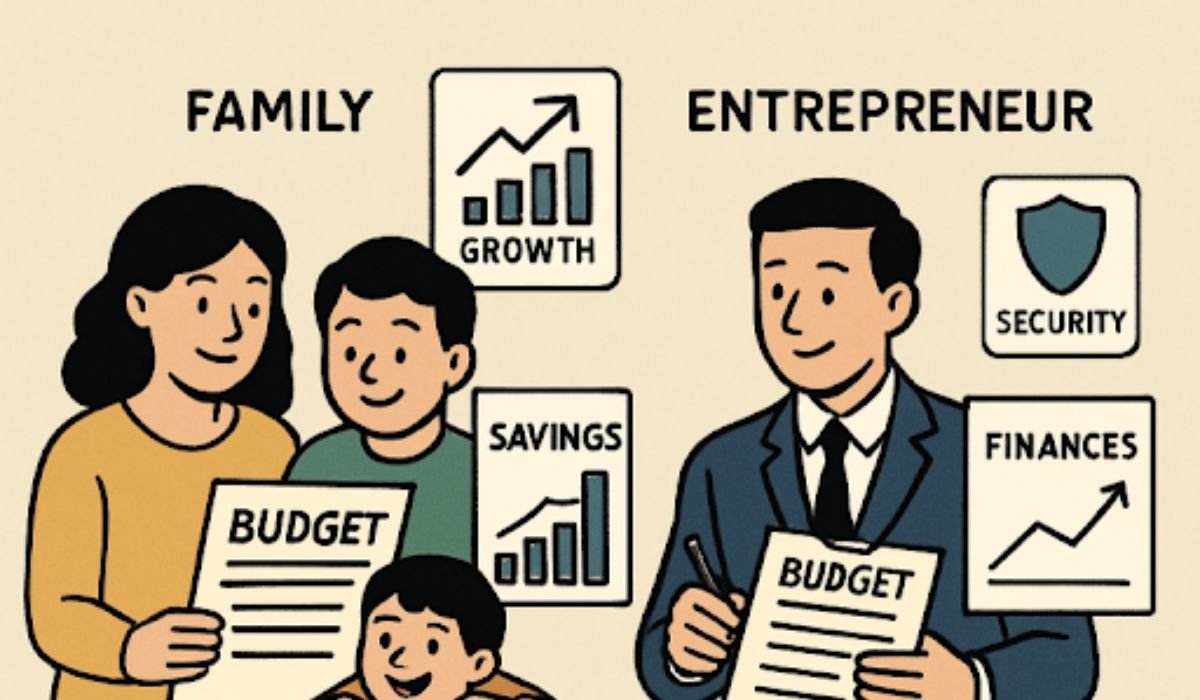Ever stared at your savings account, watching your money slowly lose its purchasing power to inflation, and wondered, “There has to be a better way”? You’re not alone. While the stock market grabs all the headlines with its dramatic ups and downs, there’s a quieter, more steady world of investing that can provide balance, income, and peace of mind. Welcome to the world of bonds.
And when it comes to navigating this world, having a powerful financial news source at your fingertips is a game-changer. That’s where FintechZoom.com bonds coverage comes into play. This friendly guide won’t just teach you what bonds are; it will show you how to use a platform like FintechZoom to become a confident bond investor. Let’s dive in!
Back to Basics: What in the World is a Bond?
Let’s forget Wall Street jargon for a second. Imagine you want to build a new patio, but you need $10,000 to do it. You don’t have the cash on hand, so you go to a friend and say, “Hey, can I borrow $10,000? I’ll pay you back in full in 10 years. In the meantime, I’ll give you 5% interest every year.”
Your friend agrees. That piece of paper outlining your agreement? That’s essentially a bond.
In the financial world, the “you” is a company or government (the issuer), and the “friend” is you, the investor. A bond is simply an IOU.
Here’s the core vocabulary you need to know:
- Principal (or Face Value): The original loan amount ($10,000 in our example).
- Coupon: The annual interest rate paid to you (5%).
- Maturity Date: The specific date when the issuer must pay you back the full principal (10 years later).
- Issuer: The entity borrowing the money (e.g., the U.S. Treasury, Apple Inc., a city government).
So, unlike stocks where you own a tiny piece of a company, with a bond, you are a lender. Your profit comes from the steady interest payments.
Why Should You Care? The Powerful Role of Bonds in Your Portfolio
“Why would I want boring old bonds when I could chase high-flying tech stocks?” It’s a fair question! Bonds play several critical roles:
- Steady Income: They provide predictable, regular interest payments, which is great for retirees or anyone needing cash flow.
- Preservation of Capital: They are generally less volatile than stocks. When you buy a bond and hold it to maturity, you’re promised your principal back (barring a default).
- Diversification: This is the golden rule. When stocks are having a bad day, bonds often hold their value or even increase. They are the shock absorbers for your investment car.
- Safety in Turbulent Times: In economic downturns, investors often flee risky stocks for the relative safety of bonds, particularly government bonds.
A common misconception is that bonds are only for old people. The truth is, every investor, regardless of age, can benefit from the stability and diversification bonds offer.
Your Command Center: How to Use FintechZoom.com for Bond Research
This is where the digital age makes investing so much easier. FintechZoom.com bonds sections are your one-stop shop for real-time data and analysis. Instead of digging through dry government websites, you get a streamlined, user-friendly interface.
When you land on their markets section, here’s what you should look for:
- Bond Market Overview: Get a snapshot of how the entire bond market is performing. Is it an “up” or “down” day?
- Treasury Yields: This is huge. FintechZoom will display the current yields for U.S. Treasury bonds (e.g., the 10-year note). This is a key indicator of the overall economy and interest rate expectations.
- Corporate Bond News: See which major companies are issuing new debt and at what rates. Is Apple issuing a new 30-year bond? You’ll read about it here.
- Municipal Bond Updates: Find news on bonds issued by states and cities, which often have tax advantages.
- Analyst Commentary: This is the secret sauce. FintechZoom provides articles and insights from financial experts explaining what the data means and how it might affect your portfolio.
A Tour of the Bond Zoo: Understanding the Different Types
Not all bonds are created equal. They come with different levels of risk and reward, much like different types of vehicles.
| Bond Type | Issuer | Risk Level | Best For |
| U.S. Treasury | Federal Government | Very Low (Backed by “full faith and credit” of the U.S.) | The ultimate safety seeker. |
| Municipal (“Munis”) | State & Local Governments | Low to Medium (Depends on the city/state’s financial health) | Investors in high tax brackets (interest is often tax-free). |
| Corporate | Companies (e.g., Apple, Ford) | Medium to High (Depends on the company’s creditworthiness) | Those seeking higher yields and comfortable with more risk. |
| High-Yield (“Junk”) | Companies with lower credit ratings | High | Aggressive investors chasing the highest returns, understanding they could lose money. |
The Invisible Force: How Interest Rates Affect Your Bonds
This is the most important—and often most confusing—concept in bond investing. There’s an inverse relationship between bond prices and interest rates.
Let’s use an analogy:
You buy a brand-new bond from Company X with a 3% coupon. A year later, interest rates have risen, and Company X now issues new bonds with a 5% coupon.
Who would want your old 3% bond when they can get a new 5% bond? No one, unless you sell it at a discount. So, the price of your 3% bond on the secondary market falls.
Conversely, if interest rates fall to 2%, your 3% bond suddenly looks amazing! Everyone will want it, so its price on the secondary market rises.
The takeaway: If you buy a bond and hold it to maturity, interest rate changes don’t matter—you’ll get your full principal back. But if you need to sell your bond before it matures, you could face a gain or a loss based on which way rates have moved.
When you’re reading about FintechZoom.com bonds, pay close attention to any news about the Federal Reserve, as their decisions on interest rates directly cause this price movement.
Read also: fintechzoom.com economy: Your Money’s Future
Your Action Plan: How to Actually Buy Bonds
Gone are the days when you had to call a special broker. Today, it’s incredibly simple.
- Through Your Brokerage: Major online brokers like Fidelity, Vanguard, and Charles Schwab allow you to buy Treasuries, corporate bonds, and municipal bonds directly.
- Bond ETFs and Mutual Funds: For most beginners, this is the easiest and most diversified way to go. Instead of picking one single bond, you buy a fund (like the Vanguard Total Bond Market ETF – BND) that holds hundreds or thousands of different bonds. This spreads out your risk instantly.
- TreasuryDirect.gov: For U.S. Treasury bonds, you can buy them directly from the government, commission-free.
Platforms like FintechZoom help you research which bonds or bond funds might be right for you before you even log into your brokerage account.
5 Practical Tips to Start Your Bond Investing Journey
Ready to put this knowledge to work? Here’s a simple checklist:
- Define Your Goal: Are you saving for a house down payment in 3 years (short-term) or building a retirement nest egg (long-term)? This determines what maturity of bonds to look at.
- Know Your Risk Tolerance: Be honest with yourself. If you’ll lose sleep over a potential default, stick to Treasuries and highly-rated corporate bonds.
- Diversify, Don’t Di-worsify: You don’t need to own 50 individual bonds. A single, low-cost bond ETF can give you instant diversification.
- Check the Credit Rating: Before buying any corporate or municipal bond, check its rating from agencies like Moody’s or S&P. It’s a quick health check on the issuer.
- Use Your Resources: Make FintechZoom.com bonds section a regular part of your financial reading. Staying informed is your greatest advantage.
Wrapping It Up: Your Path to Becoming a Savvy Bond Investor
Bonds might not be the flashiest part of the investing world, but they are undoubtedly one of the most crucial. They provide the stability and ballast that can keep your portfolio sailing smoothly through economic storms. By understanding the basics—what bonds are, the different types, and how interest rates affect them—you empower yourself to make smarter financial decisions.
Using a powerful, real-time news source like FintechZoom turns that knowledge into actionable strategy. So, the next time you’re thinking about your financial future, don’t just think stocks. Give bonds the attention they deserve.
What’s your take? Are you considering adding more bonds to your portfolio, or do you still have questions? Let us know in the comments!
FAQs
1. Are bonds a safe investment?
Generally, yes—especially U.S. Treasury bonds. However, “safety” is relative. All bonds carry some risk, primarily interest rate risk (losing value if rates rise) and credit risk (the issuer defaulting). High-yield “junk” bonds are considered quite risky.
2. What is the difference between a bond and a bond ETF?
An individual bond is a single loan to one issuer, which you hold to maturity. A bond ETF is a basket of many bonds, traded on an exchange like a stock. The ETF provides instant diversification but does not have a maturity date.
3. How often do bonds pay interest?
Most bonds pay interest, known as a “coupon,” semi-annually (twice a year). However, some bonds may pay monthly, quarterly, or annually.
4. Can I lose money investing in bonds?
Yes. The three main ways are: 1) Selling a bond before maturity for less than you paid, 2) The issuer defaulting on its payments, and 3) Inflation eroding the purchasing power of your fixed interest payments.
5. What is a bond’s “yield”?
While the “coupon” is the fixed interest rate, the “yield” is the actual annual return you get based on the bond’s current price. It’s a more dynamic and relevant number for investors buying on the secondary market.
6. Should I invest in bonds when interest rates are low?
In a low-rate environment, you lock in lower returns. A common strategy is a “bond ladder,” where you buy bonds with different maturity dates. This way, as each bond matures, you can reinvest the cash at the prevailing (and hopefully higher) interest rates.
7. Where can I find the latest bond market news?
Financial news platforms like FintechZoom.com are excellent for up-to-the-minute bond market news, analysis, and data on Treasury yields and corporate bond issuances.
You may also like: Fintechzoom.com best vpn: Top Security & Speed Picks










